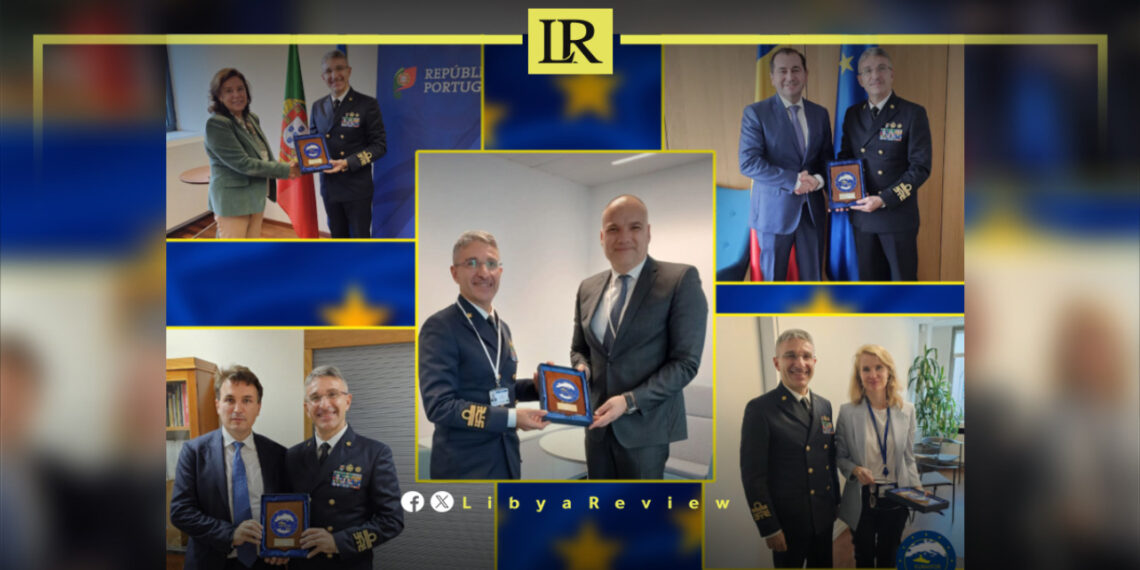On Thursday, the Commander of Operation Irini, Admiral Valentino Rinaldi, held key meetings in Brussels with senior EU representatives and ambassadors from the Political and Security Committee (PSC) to discuss reinforcing the enforcement of the UN arms embargo on Libya. The meetings aimed to assess the mission’s progress and explore ways to enhance intelligence sharing and operational coordination.
Operation Irini, an EU-led mission launched in 2020, plays a critical role in preventing the flow of weapons into Libya, a country struggling to recover from years of conflict.
During his visit, Admiral Rinaldi also met with Daniel Markić, Director of the EU Intelligence and Operations Center, to improve cooperation between intelligence networks and enforcement agencies. These discussions reflect the EU’s focus on enhancing the mission’s effectiveness as Libya remains a key security concern in the Mediterranean region.
Operation Irini’s primary goal is to enforce the UN-imposed arms embargo on Libya by monitoring sea routes, airspace, and satellite data to detect and block illegal arms shipments. The mission operates in the central Mediterranean and conducts inspections of vessels suspected of carrying weapons. This arms embargo is critical to preventing further destabilization in Libya, where the flow of weapons has fueled conflict between rival factions.
Despite several peace initiatives, weapons continue to reach Libyan factions, undermining efforts to build lasting peace. Operation Irini is part of the EU’s broader strategy to support political reconciliation and stabilize the region by cutting off military supplies to conflicting parties.
During his meetings, Admiral Rinaldi emphasized the need to enhance cooperation between EU institutions and intelligence networks to ensure the mission’s success. His discussions with Daniel Markić focused on integrating real-time intelligence and satellite data into Irini’s operations, making arms enforcement more efficient and precise. This increased coordination aims to close loopholes and prevent smuggled arms from reaching Libya by air or sea.
The meetings in Brussels also reflected the EU’s intention to strengthen multi-agency collaboration, recognizing the importance of combining military, diplomatic, and intelligence efforts to uphold the arms embargo and ensure regional security.
While Operation Irini has achieved significant progress, it faces several challenges, including limited enforcement capabilities and persistent violations through land and air routes. Although the mission primarily focuses on sea-based operations, many weapons are still smuggled through Libya’s porous southern borders.
Some EU member states have raised concerns about the scope of Irini’s operations, but the mission’s leadership remains committed to expanding efforts and adapting strategies to address evolving threats. Admiral Rinaldi reaffirmed the importance of EU unity and collaboration to overcome these challenges and ensure the mission’s effectiveness.


